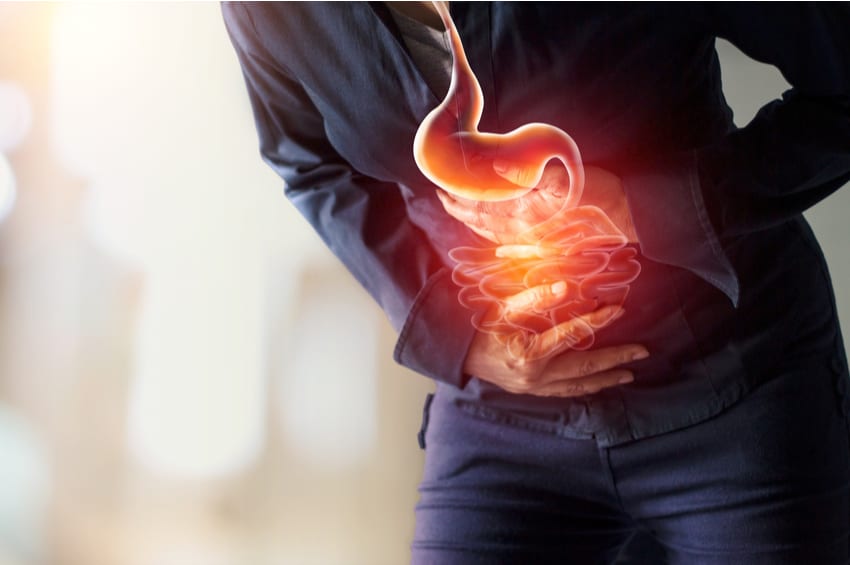
Why should you go low carb? What are the benefits of this way of eating? You’ve heard about the ketogenic diet and ditching the heavy carbs, but you’re not sure if you’re ready to jump on the bandwagon just yet. Here are the top five reasons to go keto or low-carb:
1. Weight Loss!
Research is mounting and revealing how effective the ketogenic diet is for weight loss. Ditching the carbs can help you lose weight, so if you’re interested in losing a few pounds or more than a few, going keto could help you reach your goals. Weight loss can occur quickly with keto, and most weight loss in the first few weeks is from water since carbohydrates retain water when stored in the body. Your body also reduces glycogen stores (or stored glucose) in the muscles [1]. Weight loss continues at a steady rate from this point. [2] [3] [4].
2. Lowering Inflammation
Inflammation is involved in a plethora of diseases, from arthritis to autoimmune disease and heart disease. Research shows the ketogenic diet can boost antioxidant production, lower inflammation, and more [5] [6]. Inflammation is your immune system’s response to an irritant. A wound that swells up and turns red and painful could indicate inflammation. Your body releases certain chemicals with the inflammatory response. Inflammation might be caused by bacteria, fungi, viruses, external injuries, or toxins like radiation or chemicals. [7] Studies show the lack of sugar and the healthy fats involved with a low-carb ketogenic diet can reduce inflammatory markers. When compared to a low-fat diet, keto is far superior for lowering inflammation [8] [9].
3. Athletic Performance
The keto diet might boost performance for endurance athletes. For example, one study of 39 athletes showed the metabolic state of ketosis improved physical endurance due to the body’s ability to use fat as an alternative energy source. Another small study of endurance athletes reported that following a keto diet for 12 weeks improved body composition, performance, and fat-burning during exercise. More studies are needed [10] [11] [12]. Ditching the carbs and boosting the healthy fat might also improve post-workout muscle recovery. For instance, one study in off-road cyclists noted the ketogenic diet decreased levels of two enzymes used to measure muscle damage: lactate dehydrogenase and creatine kinase. A mouse study showed following a keto diet for 8 weeks increased muscle recovery after exhaustive exercise [13] [14].
4. Neurological Conditions
You might also choose to go low carb to improve and help manage a neurological condition like epilepsy. Promising science points to the many benefits of the ketogenic diet for the brain and brain disorders. Studies of people with epilepsy on a ketogenic diet show improvement in alertness, cognition, and attention. More and more research points to a significant reduction in seizures in both children and adults when using the ketogenic diet [15] [16] [17] [18].
5. Boosting Metabolism
Most health experts agree it’s best to step off the blood sugar rollercoaster and avoid constantly spiking your blood sugar with a carb- and sugar-heavy diet. It’s a good idea to become more keto-adapted, and many people find it boosts metabolism!
References
Kreitzman, S. N., Coxon, A. Y., & Szaz, K. F. (1992). Glycogen storage: illusions of easy weight loss, excessive weight regain, and distortions in estimates of body composition. American Journal of Clinical Nutrition, 56(1), https://doi.org/10.1093/ajcn/56.1.292S
Bueno, N. B., Vieira de Melo, I. G., De Oliveira, S. L., & Da Rocha Ataide, T. (2013). Very-low-carbohydrate ketogenic diet v. low-fat diet for long-term weight loss: a meta-analysis of randomized controlled trials. British Journal of Nutrition, 110(7), 1178-1187. https://doi.org/10.1017/S0007114513000548
Westman, E. C., Mavropoulos, J., Yancy Jr, W. S., & Volek, J. S. (2003). A review of low-carbohydrate ketogenic diets. Current Atherosclerosis Reports, 476-483. https://link.springer.com/article/10.1007/s11883-003-0038-6
Dashti, H. M., Al-Zaid, N. S., Mathew, T. C., Al-Mousawi, M., Talib. H., Asfar, S. K., & Behbahani, A. I. (2006). Long-term effects of ketogenic diet in obese subjects with high cholesterol level. Molecular and Cellular Biochemistry, 286 https://link.springer.com/article/10.1007/s11010-005-9001-x
Ruskin, D. N., Kawamura, Jr., & Masino S. A. (2009). Reduced pain and inflammation in juvenile and adult rats fed a ketogenic diet. PLOS One, 4(12), https://doi.org/10.1371/journal.pone.0008349
Dupuis, N., Curatolo, N., Benoist, J., & Auvin, S. (2015). Ketogenic diet exhibits anti-inflammatory properties. Epilepsia, https://doi.org/10.1111/epi.13038
InformedHealth.org (2010). What is Inflammation? https://www.ncbi.nlm.nih.gov/books/NBK279298/
Forsythe, C. E., Phinney, S. D., Fernandez, M. L., Quann, E. E., Wood, R. J., Bibus, Doug. M., Kraemer, W. J., Feinman, R. D., & Volek, J. S. (2007). Comparison of low fat and low carbohydrate diets on circulating fatty acid composition and markers of inflammation. Lipids, https://doi.org/10.1007/s11745-007-3132-7
Masino, S. A., & Ruskin, D. N. (2013). Ketogenic diets and pain. Journal of Child Neurology, 28(8), 993-1001. doi: 10.1177/0883073813487595.
Cox, P. J., Kirk, T., Ashmore, T., Willerton, K., Evans, R., Smith, A., Murray, A. J., Stubbs, B., West, J., McLure, S. W., King, T., Dodd, M. S., Holloway, C., Neubauer, S., Drawer, S., Veech, R. L., Griffin, J. L., & Clarke, K. (2016). Nutritional ketosis alters fuel preference and thereby endurance performance in athletes. Cell Metab, 24(2), 256-268. DOI: 10.1016/j.cmet.2016.07.010
McSwiney, F. T., Wardrop, B., Hyde, P. N., Lafountain, R. A., Volek, J. S., & Doyle, L. (2018). Keto-adaptation enhances exercise performance and body composition responses to training in endurance athletes. Metabolism, 81, 25-34. DOI: 10.1016/j.metabol.2017.10.010
Sansone, M., Sansone, A., Borrione, P., Romanelli, F., Luigi, L. D., & Sgro, P. (2018). Effects of ketone bodies on endurance exercise. Curr Sports Med Rep, 17(12), 444-453. DOI: 10.1249/JSR.0000000000000542
Durkalec-Michalski, K., Nowaczyk, P. M., & Siedzik, K. (2019). Effect of a four-week ketogenic diet on exercise metabolism in CrossFit-trained athletes. J Int Soc Sports Nutr, 16, 16. DOI: 10.1186/s12970-019-0284-9
Huang, Q., Ma, S., Tominaga, T., Suzuki, K., & Liu, C. (2018). An 8-week, low carbohydrate, high fat, ketogenic diet enhanced exhaustive exercise capacity in mice part 2: Effect on fatigue recovery, post-exercise biomarkers and anti-oxidation capacity. Nutrients, 10(10), 1339. DOI: 10.3390/nu10101339
Van Berkel, A. A., Ijff, D. M., & Verkuyl, J. M. (2018). Cognitive benefits of the ketogenic diet in patients with epilepsy: A systematic overview. Epilepsy & Behavior, 87, 69-77. https://doi.org/10.1016/j.yebeh.2018.06.004
Masino, S. A., Li, T., Theofilas, P., Sandau, U. S., Ruskin, D. N., Fredholm, B. B., Geiger, J. D., Aronica, E., & Boison, D. (2011). A ketogenic diet suppresses seizures in mice through adenosine A1 receptors. Journal of Clinical Nutrition, 121(7), 2679-2683. doi:10.1172/JCI57813.
Williams, T. J., & Cervenka M. C. (2017). The role for ketogenic diets in epilepsy and status epilepticus in adults. Clinical Neurophysiology Practice, 2, 154-160. https://doi.org/10.1016/j.cnp.2017.06.001
Gasior, M., Rogawski, M. A., & Hartman, A. L. (2006). Neuroprotective and disease-modifying effects of the ketogenic diet. Behavioural Pharmacology, 17(5-6), 431-439. https://doi.org/10.1016/j.cnp.2017.06.001









